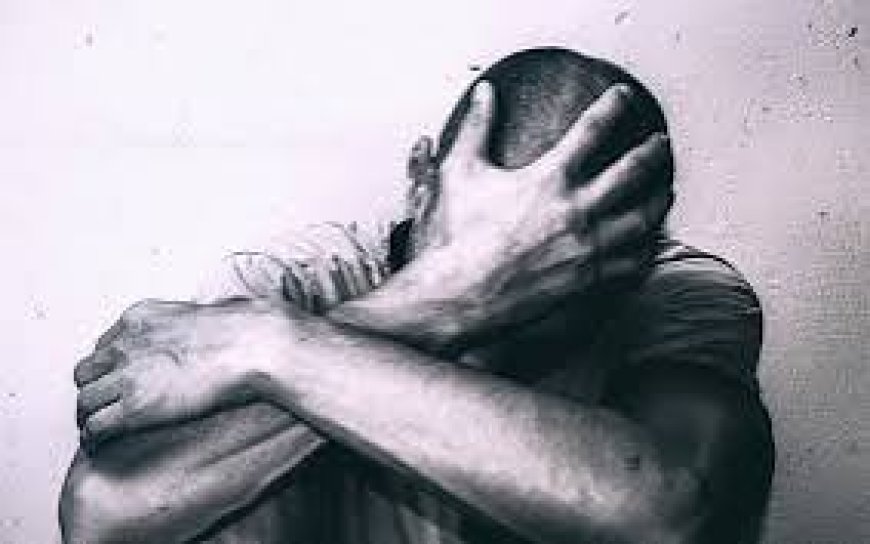Silent struggles: Mental health stigma and the fight for awareness in Kenya

By Robert Mutasi
October is the month for Mental Awareness-a month when most of the world stops to contemplate often neglected wars that are being fought within.
In Kenya, the dialogue on mental health is increasing, but the journey to full understanding and acceptance on the ground is long and riddled with deeply entrenched challenges.
Mental illnesses, especially among the youths, have been stigmatized, barely understood, and often shunned across Kenya.
The Silent Crisis
Kenya, like most African countries, has grappled with mental health awareness for a long time.
The country faces a disturbing reality: 1 in 4 Kenyans suffers from a mental health condition, according to a study by the Taskforce on Mental Health in Kenya, which was done in 2020.
However, according to WHO, Kenya has a total of 100 psychiatrists serving more than 55 million people.
This appalling shortage underpins systemic neglect of mental health, with rural areas almost excluded from any form of attention at all.
Perhaps there might be prospects for getting treatment in urban centers like Nairobi, but even then the thing that truly reigns is stigma.
Dr Chitayi Murabula, a psychiatrist at Kenyatta National Hospital, illustrates the extent of the problem in an interview with The Nairobi Review.
"Traditionally, mental illness has been associated with madness and witchcraft. Many hold onto the belief that psychological problems are linked to curses and some supernatural kind of thing, which further perpetuates shame and silencing.".
Because of that stigma, the consequences are tragic: the more young people like Alice fall prey to depression, anxiety, and other psychiatric disorders, the more they must suffer in isolation, fearing the rejection of family and society.
In a society where mental illness is so often denied, the suffering of its members becomes invisible.
Urban vs. Rural Realities
While invisible pains of the mind cut across urban and rural areas, attitudes and access to care are worlds apart. In Nairobi, globalization and modernity have reshaped many cultural norms, and conversations around mental health are finally emerging.
There are more therapists, more support groups, and social media spaces allowing young people to talk about their mental well-being.
These facilities are, however, mostly costly and unaffordable by most members of the public.
The case is even worse in rural Kenya, where traditional beliefs are prevalent and mental illness is seldom talked about.
For this reason, some rural communities rely more on traditional healers or spiritual leaders as the first line of defense against mental illness.
John Kamau, leader of one community in Nyeri, describes how people in his village approach these issues. "If someone behaves strangely, we believe they've been bewitched. We don't talk about depression or trauma. We take them to the local healer or pastor."
These attitudes, though deeply entrenched, are changing.
Dr. Gladys Mwiti is the Chief Executive Officer of Oasis Africa, an organization that ensures mental health is pursued sensitively in a cultural approach. For this reason, it means that therapy models cannot just be imposed on them from the West.
"We can't just impose Western models of therapy on these communities. We need to engage with the local leaders and integrate the traditional practices with modern medicine, ensuring that we respect their beliefs while providing scientifically sound care."
The Role of the Youth
They are the pivot of Kenya's mental health crisis, as over 60 percent of the country's population is comprised of young people. According to a survey by Kenya Mental Health Action Plan in 2021, the number of youth committing suicide had risen by 58 percent in the last decade.
In Kenya, youths have been hit on all sides by the squalor of economic pressure, stress and competitiveness academically, unemployment, and even long-term impacts of the COVID-19 pandemic.
For many, social media has become a source of refuge and a battlefield. Social platforms like Instagram and Twitter have so far become places where young people talk about their struggles and can be taken seriously, but at the same time they produce unrealistic expectations and cyberbullying.
"The pressure to succeed, to be perfect, it overwhelms me," Brian, a 19-year-old university student here in Nairobi said. "You feel like you cannot fail, and if you do, well, it is the end of everything."
A Way Forward
The government in Kenya has termed the mental health crisis as one of great urgency.
The Ministry of Health declared this a national emergency in 2020, after which mental health was integrated into primary health services.
Despite all this, progress is yet to emerge. For example, Kenya spends less than 0.5 percent of the entire health budget on mental health, below half of the global average expenditure on mental health, estimated at 2 percent.
This underinvestment perpetuates inadequate infrastructure and a lack of trained professionals.
But in the midst of despair and silence, there is yet hope. Grassroots organizations such as Tumaini Counseling and Basic Needs Kenya work tirelessly to bring awareness and counseling to people who may need it.
Schools are starting to incorporate mental health into their lesson plans, and more and more youth are finding their voices-breaking the silence that for many years shrouded mental illness in shame.
For Alice, it is a journey yet to be traversed. "It is difficult, but I am learning to live with my depression," Alice says. "I have found friends who understand, and that gave me strength."
As Kenya marks Mental Health Awareness Month this October, voices of those like Alice remind us that while long the change may be in coming, every step forward is a victory over the darkness of silence.
What's Your Reaction?



































































































































































































































































































